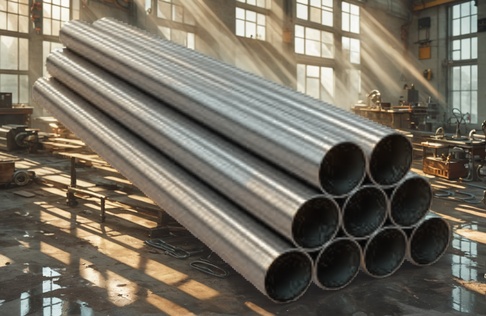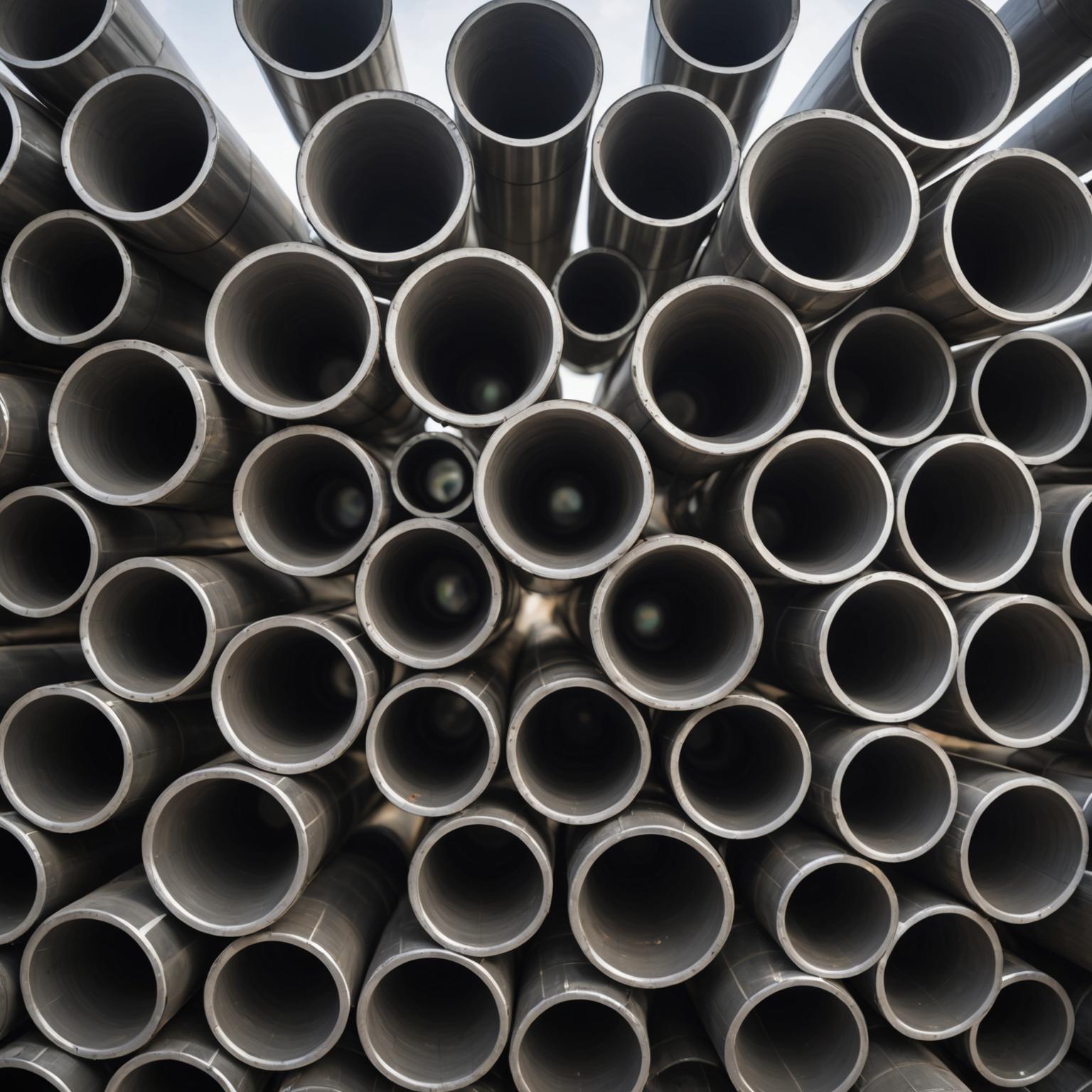Steel pipe is an essential component in modern construction and industrial applications, serving as the backbone for everything from plumbing systems to structural frameworks. These robust conduits, made from high-quality materials, ensure durability and reliability in various environments. As we delve into the world of steel pipes, we’ll explore their features, benefits, and how to source them effectively, drawing from the latest advancements in manufacturing.

The Superior Qualities of Steel Pipes
In the realm of industrial materials, steel pipe stands out for its exceptional strength and versatility. Crafted from premium 316-grade stainless steel, these pipes embody precision engineering that guarantees superior corrosion resistance, even when exposed to harsh conditions like saltwater or chemical environments. Imagine a seamless structure that flows without interruptions, eliminating weak points and ensuring every inch can withstand immense pressure. This seamless construction is a hallmark of advanced manufacturing processes, where internal defects are meticulously avoided to provide unwavering structural integrity. The polished, mirror-like finish adds an aesthetic appeal that makes these pipes ideal for visible installations, blending functionality with elegance in architectural designs or automotive assemblies. Whether it’s facilitating fluid transport in plumbing or supporting heavy loads in construction, steel pipes offer unmatched performance, reflecting a commitment to sustainability by being fully recyclable without sacrificing quality.
Exploring Applications and Benefits
Beyond their basic utility, steel pipes bring a host of benefits that make them indispensable in diverse sectors. Picture a world where efficiency meets endurance: these pipes are designed for a multitude of uses, from the intricate networks of urban water systems to the robust frameworks of bridges and skyscrapers. Their flexibility in diameters and lengths allows for custom solutions, tailored to specific project needs, whether it’s a small residential plumbing job or a large-scale industrial operation. The durability of steel pipes means they require minimal maintenance over time, saving costs and resources while delivering consistent results. In automotive applications, they provide the strength needed for exhaust systems that can handle high temperatures and vibrations, all while maintaining a sleek appearance. This adaptability not only enhances performance but also contributes to eco-friendly practices, as these pipes are engineered with recyclability in mind, promoting a greener future without compromising on reliability. As industries continue to evolve, steel pipes remain at the forefront, redefining standards with their blend of innovation and practicality.
Navigating Steel Pipe Suppliers and Prices
When it comes to sourcing steel pipe, understanding the landscape of steel pipe suppliers and steel pipe prices is crucial for making informed decisions. Steel pipe suppliers play a pivotal role in the supply chain, offering a wide array of options from standard sizes to custom specifications, ensuring that businesses can find exactly what they need. These suppliers often provide detailed catalogs and expert advice, helping customers select the right grade and dimensions for their projects. Prices for steel pipes can vary based on factors such as material quality, size, and market conditions, but investing in high-grade options like 316 stainless steel ultimately leads to long-term savings through reduced replacement needs. For instance, a standard 2-inch diameter steel pipe might range from affordable entry-level prices to premium rates for specialized features, making it essential to compare suppliers for the best value. Steel pipe prices fluctuate with global material costs, so staying updated with market trends can help secure competitive deals. Reputable suppliers not only offer competitive pricing but also ensure timely delivery and quality assurance, allowing projects to proceed smoothly. By choosing reliable steel pipe suppliers, you gain access to products that exceed industry standards, providing peace of mind and superior performance.
The Future of Steel Pipes in Industry
As we look ahead, the role of steel pipes in shaping sustainable and innovative industries cannot be overstated. These pipes are more than just materials; they are the lifelines of modern infrastructure, supporting everything from renewable energy systems to advanced manufacturing processes. Their ability to adapt to emerging technologies, such as in hydrogen transport or high-pressure gas lines, highlights their enduring relevance. With a focus on longevity and environmental responsibility, steel pipes continue to evolve, incorporating new alloys and treatments that enhance their properties. This forward-thinking approach ensures that they remain a top choice for engineers and builders alike, fostering a world where durability and design go hand in hand. Whether you’re a professional contractor or an industry enthusiast, embracing the potential of steel pipes means investing in a future that’s built to last.

